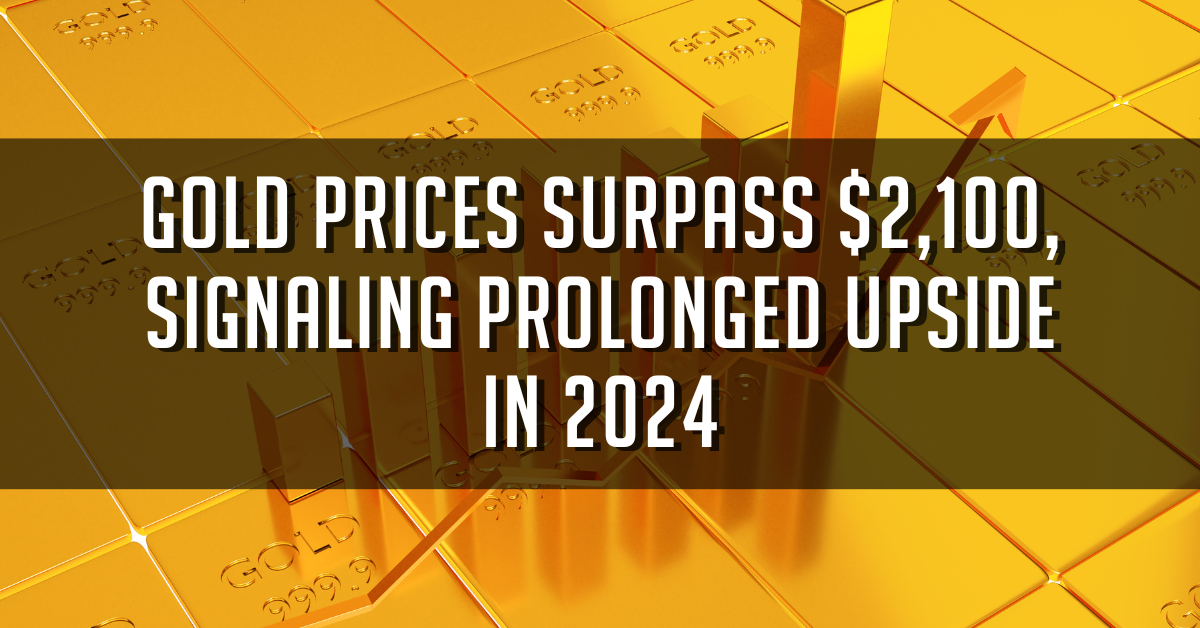The recent surge in gold prices, reaching an impressive $2,100 per ounce on Monday for the second consecutive day, has become a focal point for investors, hinting at a potential trend that might endure into the forthcoming year. This remarkable ascent is attributed to various pivotal factors expected to significantly influence the performance of this precious metal in the near term.
Geopolitical Unrest Boosts Gold's Appeal
Geopolitical uncertainty stands out as a primary catalyst propelling the surge in gold demand. The ongoing Israel-Palestinian conflict has elevated global economic and political tensions, compelling investors to seek refuge in safe-haven assets, particularly gold. Renowned for its historical role as a reliable store of value during crises, gold's allure as a haven for wealth preservation appears heightened amid the current geopolitical landscape.
Bullish Outlook Supported by Multiple Factors
An optimistic outlook prevails concerning gold prices, with expectations that they will sustain levels above $2,000, buoyed by several factors. Foremost among these is the anticipation of a weaker U.S. dollar and potential interest rate reductions. A diminished dollar traditionally enhances gold's appeal for international buyers, as the precious metal becomes more accessible in other currencies.
The prospect of interest rate cuts further supports the upward trajectory of gold prices. In the context of central banks contemplating monetary policy adjustments to invigorate economic growth, the possibility of lower interest rates emerges. Gold, with its intrinsic value and restricted supply, tends to thrive in environments marked by diminished interest rates, making it an attractive asset for investors seeking returns in a low-yield landscape.
2024: Projected Highs and Central Bank Influence
Looking ahead to 2024, the outlook for gold prices remains bullish, with market analysts forecasting an average of $2,100 in the second quarter. Central bank purchases are anticipated to play a pivotal role in propelling gold prices during this period. A recent survey by the World Gold Council revealed that 24% of central banks plan to augment their gold reserves in the next 12 months, signaling a growing skepticism among central banks regarding the U.S. dollar's reliability as a reserve asset.
Fed Policy Pivot and Gold Market Dynamics
The potential policy shift by the Fed in 2024 introduces another layer of complexity to the dynamics of the gold market. The implementation of lower interest rates could further weaken the U.S. dollar, amplifying gold's attractiveness to international buyers. This sets the stage for an increased demand for gold as a hedge against currency devaluation and economic uncertainty.
As central banks express their intention to bolster gold reserves and market analysts foresee a sustained surge in demand, gold emerges as a compelling contender for a prominent role in investment portfolios in the foreseeable future.
Fullerton Markets Research Team
Your Committed Trading Partner


 Gold Prices Surpass $2,100, Signaling Prolonged Upside in 2024">
Gold Prices Surpass $2,100, Signaling Prolonged Upside in 2024">








